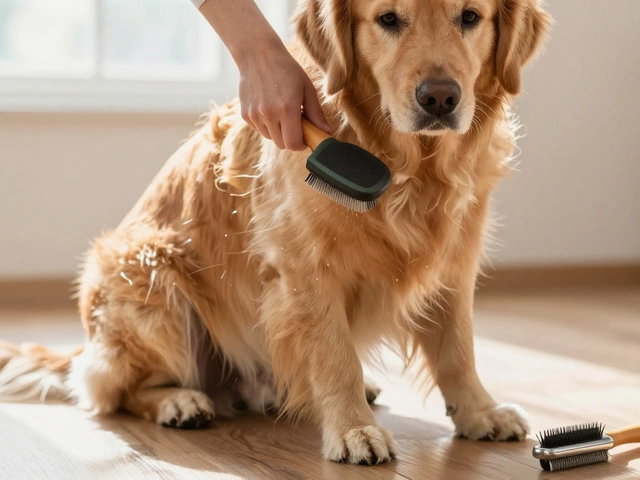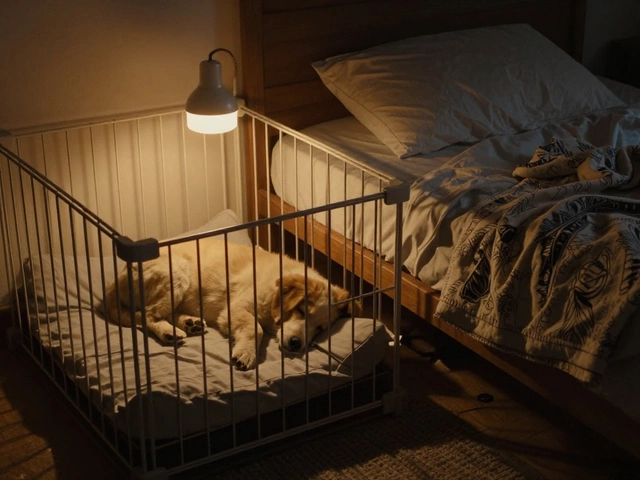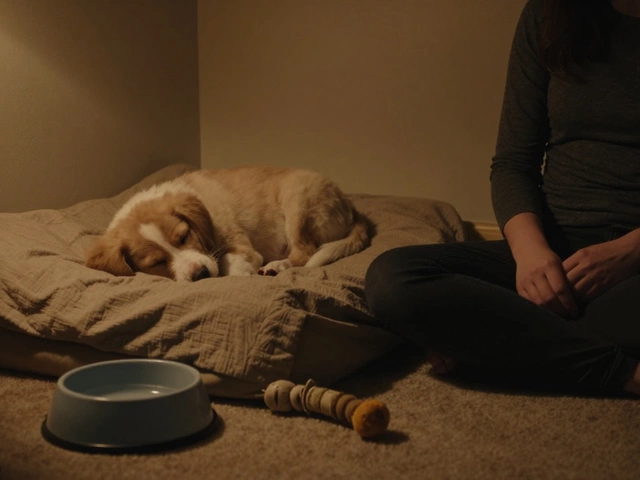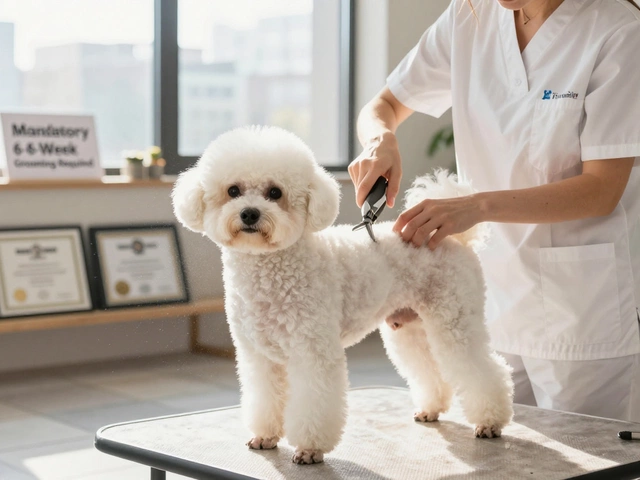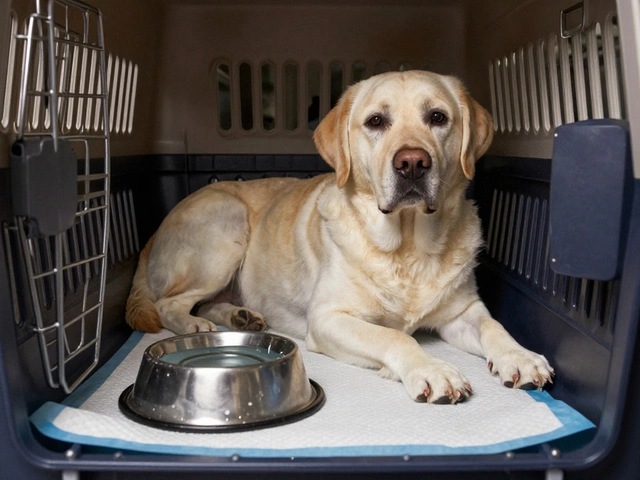Puppy Discipline Made Simple: Real Advice for New Dog Parents
Got a puppy that’s chewing everything or having accidents on the rug? You’re not alone. The good news is you don’t need harsh punishments or confusing tricks. A few clear, consistent steps can turn that wild ball of fur into a polite, happy companion.
Start with the Basics: House‑Training and Routine
Dogs are creatures of habit, so set a schedule and stick to it. Take your pup outside first thing in the morning, after meals, after play, and before bedtime. Use the same door and the same cue phrase like “Go potty.” When they finish, praise them with a happy voice and a quick treat. The moment they associate the cue and the reward, they’ll try to repeat it.
If an accident happens inside, stay calm. Clean the spot with an enzymatic cleaner so the scent disappears. Avoid scolding; the puppy can’t connect the punishment to the earlier mess. Instead, increase the number of bathroom trips and watch for signals – sniffing, circling, or whining – that they need to go.
Teach Bite Inhibition and Gentle Play
Puppies explore the world with their mouths, but they need to learn that teeth on skin aren’t okay. When play gets rough, let out a soft “Ow!” and stop the game for a few seconds. The pause tells them that fun ends when they bite too hard. After a brief break, invite them to play again. Consistency teaches them to control the pressure of their bite.
Redirect their chewing instinct to appropriate toys. Keep a basket of safe chew toys near their sleeping area and swap anything they grab that isn’t a toy. When they chew the right item, reward them. Over time they’ll prefer the chew toy over your shoe.
Positive reinforcement works for everything else, too. When your pup sits on command, stays calm around visitors, or walks nicely on a leash, give a treat, praise, or a quick game of fetch. The brain loves rewards, and the behavior sticks.
Remember, short training sessions are more effective than long, boring ones. Five‑minute bursts a few times a day keep their attention and prevent frustration.
Finally, be patient with setbacks. Puppies grow, their hormones change, and new situations can spark old habits. When a regression occurs, go back to the basics: consistent schedule, clear cues, and lots of praise for the right actions.
With these straightforward steps, you’ll see fewer accidents, fewer bites, and more calm moments. Discipline isn’t about being tough; it’s about guiding your puppy with kindness, consistency, and clear communication. Your pup will soon understand what’s expected, and you’ll both enjoy a happier, cleaner home.
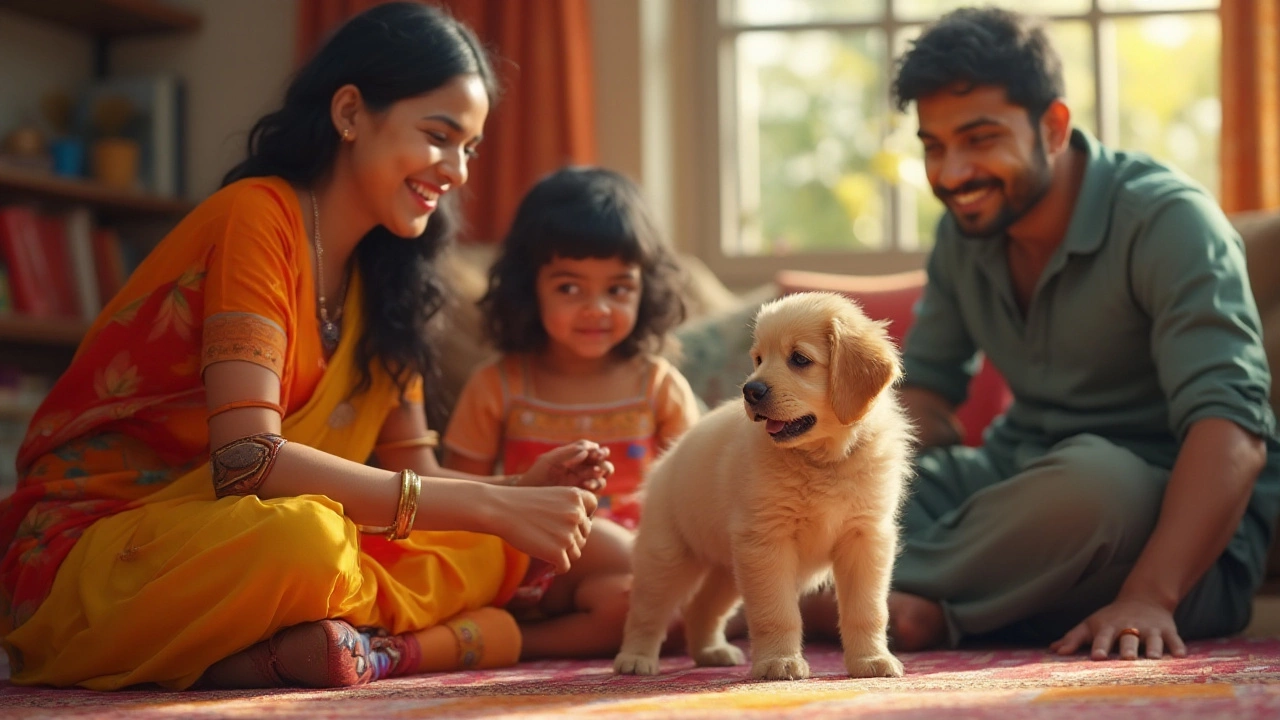
Effective Solutions for House-Training a Puppy and Managing Accidents
House-training a puppy requires patience, understanding, and the right approach. If your puppy pees in the house, learning the best disciplinary methods is crucial to ensure effective learning and a happy household. It's important to approach this problem with a positive mindset and practical strategies. This article provides useful information on how to handle accidents and reinforce good behaviors using effective puppy training techniques.
read more